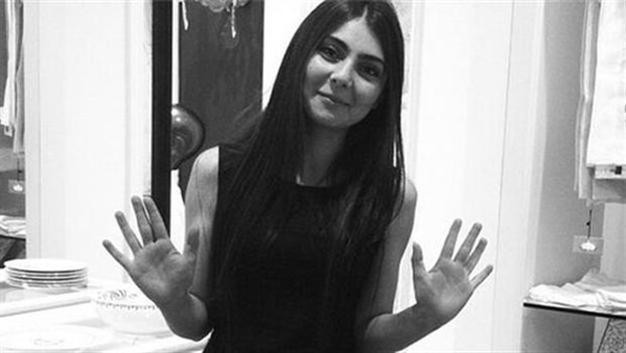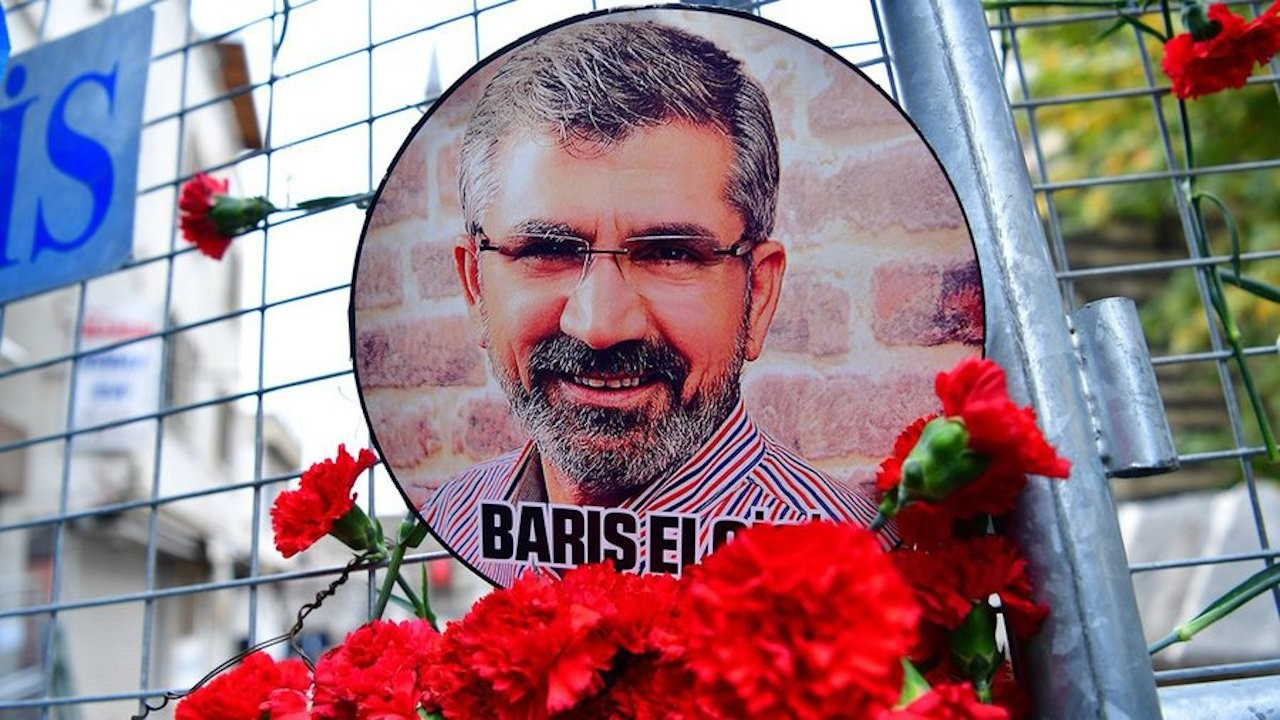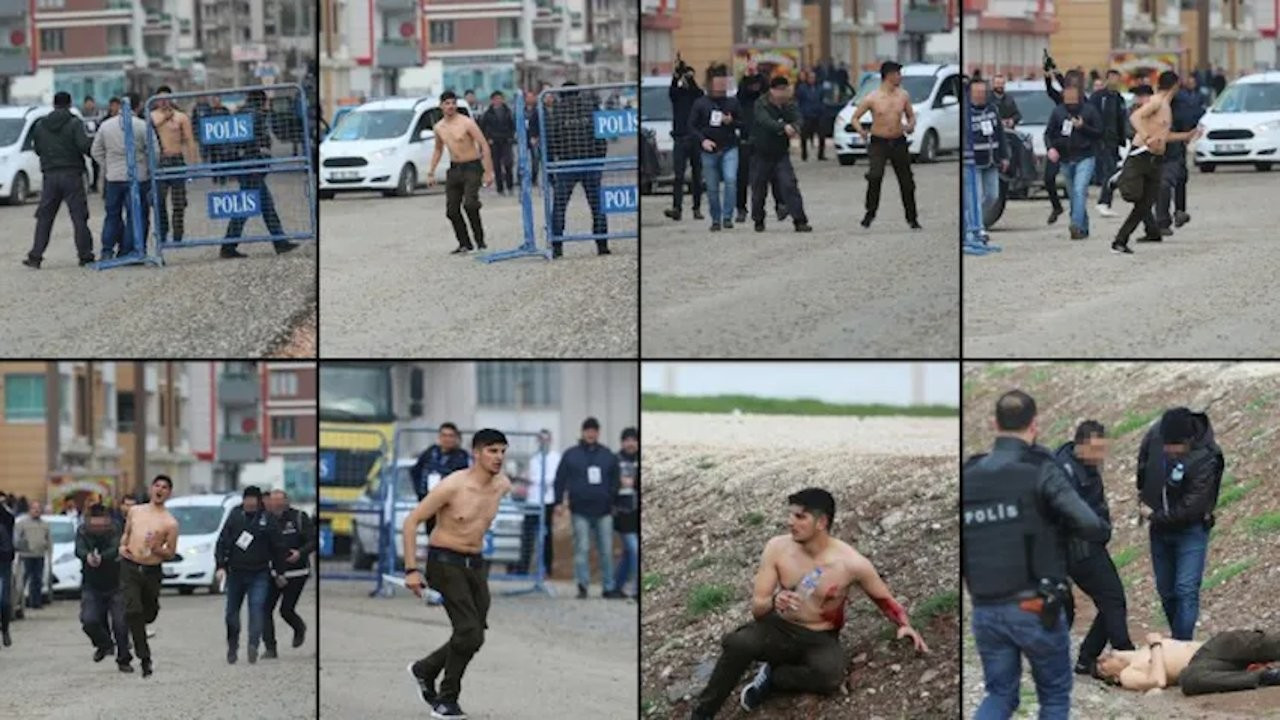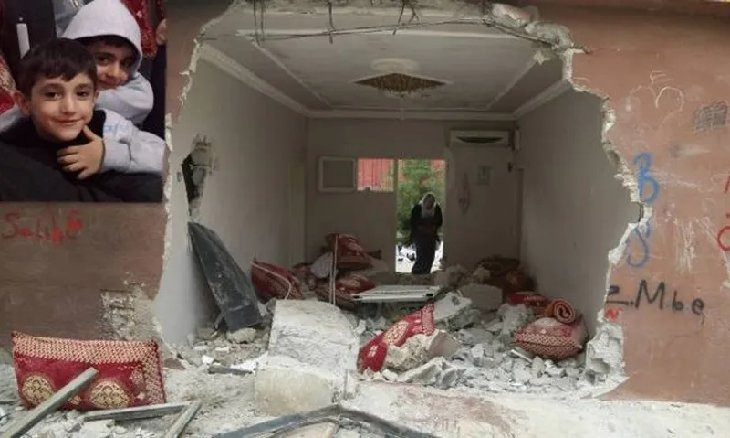Family of woman slain by police goes to ECHR, six years after murder
The family of slain Dilek Doğan has been demanding justice after learning that the police officer who killed her will receive only a 45-day sentence if the Court of Cassation upholds the local court's ruling. The family will take the case before the European Court of Human Rights (ECHR).
Duvar English
The family of Dilek Doğan, shot by police in her home in 2015, says they will bring her case before the European Court of Human Rights (ECHR), Mezopotamya news agency reported on Oct. 17. Six years after her murder, her family has yet to receive justice.
Police raided Doğan’s home, in the Küçükarmutlu district on the European side of Istanbul, on Oct. 18, 2015. The operation was conducted against 16 different addresses to purportedly apprehend an alleged potential suicide bomber belonging to the outlawed Revolutionary People’s Liberation Party-Front (DHKP-C).

On that night, six years ago, Doğan asked police to “wear shoe coverings” when they entered her house. Over the course of her argument with the officer, she was shot in the chest. An ambulance arrived 45 minutes later to take her to the hospital, where she was taken to the intensive care unit. She died one week later, on Oct. 25, 2015.
Immediately following her death, a lawsuit was filed against the special forces officer who killed her - referred to as Y.M. in court documents - for "deliberately committing a killing with negligent behavior” and “using public service vehicles and equipment in a crime.” These charges carry a sentence of 20 to 26.5 years, based on the Turkish Criminal Code.
However, the Istanbul 12th High Criminal Court sentenced officer Y.M to just six years and three months in prison due to “good behavior” in March 2017, and found him guilty of "causing death by conscious negligence.” Last July, the Public Prosecutor's Office of the Court of Cassation rejected the Doğan family's appeal, but now the file is still at the top appeals court. If the local court's ruling is approved, officer Y.M. will serve just 45 days in prison.
Since Dilek Doğan’s trial began, her family has called for heavier punishment for officer Y.M. They wanted the officer to be charged with "deliberate killing" or "probable intentional killing.” Now, stating that they have exhausted all routes to justice in Turkey, they will take the case to the ECHR.
On the sixth anniversary of her daughter’s death, Aysel Doğan told Mezopotamya agency that her daughter was her “everything.”
“My daughter was my everything, one morning they came and took my everything,” she said.
Aysel further explained that she has yet to accept Dilek’s death - she still suffers as she did on the first day after her daughter died.
“I can't get used to my daughter's death. I feel as if Dilek never died, one day she will knock on the door and say, 'Mom, I came [home].’ Years have passed, and I am still waiting for her to come back,” Doğan said.
She said that Dilek’s death was the pinnacle of a life spent under state repression. The Doğan family migrated to Istanbul from the village of Afşin Serkizçay in the southeastern province of Kahramanmaraş, due to state violence. Hundreds of thousands of families, largely Kurdish, followed the same migration route in the 1980s and 1990s due to the Turkish state campaign against the Kurdistan Workers’ Party (PKK). The first year the Doğan family was in Istanbul, said Aysel, her husband was detained and arrested.
“I was left alone with five children. Since my children were small, I did not have the opportunity to work. We survived for five years with the support of our relatives. We lived in a makeshift house. I know how difficult it was for me to raise my children. We escaped the pressure, they followed us as we made our way, and they didn’t stop until they killed my daughter,” Aysel Doğan said.
Aysel Doğan said that her family has suffered extensively since Dilek’s death. One of her sons, Emrah Doğan, was arrested while demanding justice for Dilek. Her other son had to leave his son and wife and go abroad due to “pressure” from the case.
“The state, which put one of my children in the grave and the other in prison, did not even give a 45-day sentence to the police who killed my daughter,” Aysel said. “We can't go to the market, we are under constant surveillance. We have been subjected to the worst treatment you can experience in this country.”
Dilek Doğan’s father, Metin Doğan, brought up the fact that at the trial for his daughter’s murder, officer Y.M. relegated the killing to something done in the service of the state - “The state ordered, and I shot,” he said. They called his daughter a terrorist, Metin Doğan said, despite her being involved in no political activity. And now, the police officer who killed her hasn’t even been punished “as much as a bullet.”
“Was my daughter’s life as worthless as a bullet?” he asked.
He said that the impunity experienced by officer Y.M. is another example of the inefficacy of the justice system in contemporary Turkey.
“They [the state] talk about ‘state of law, state of justice,’” Metin Doğan said. “Which justice, justice for whom? There is law and justice for the rulers. There is no justice for people like us. Police in Turkey have become the justice system. It is the police who arrest, the police who judge, the police who punish. Prosecutors and judges don’t even have their own free will.”

 Turkish court refuses to arrest police officers suspected of killing Tahir ElçiHuman Rights
Turkish court refuses to arrest police officers suspected of killing Tahir ElçiHuman Rights Ugly truth behind the Kurkut killing: Turkish police get away with murder, a journalist gets 20 years in jailWorld
Ugly truth behind the Kurkut killing: Turkish police get away with murder, a journalist gets 20 years in jailWorld Turkish policemen get away with killing two boys in Şırnak after court finds fining them sufficientHuman Rights
Turkish policemen get away with killing two boys in Şırnak after court finds fining them sufficientHuman Rights